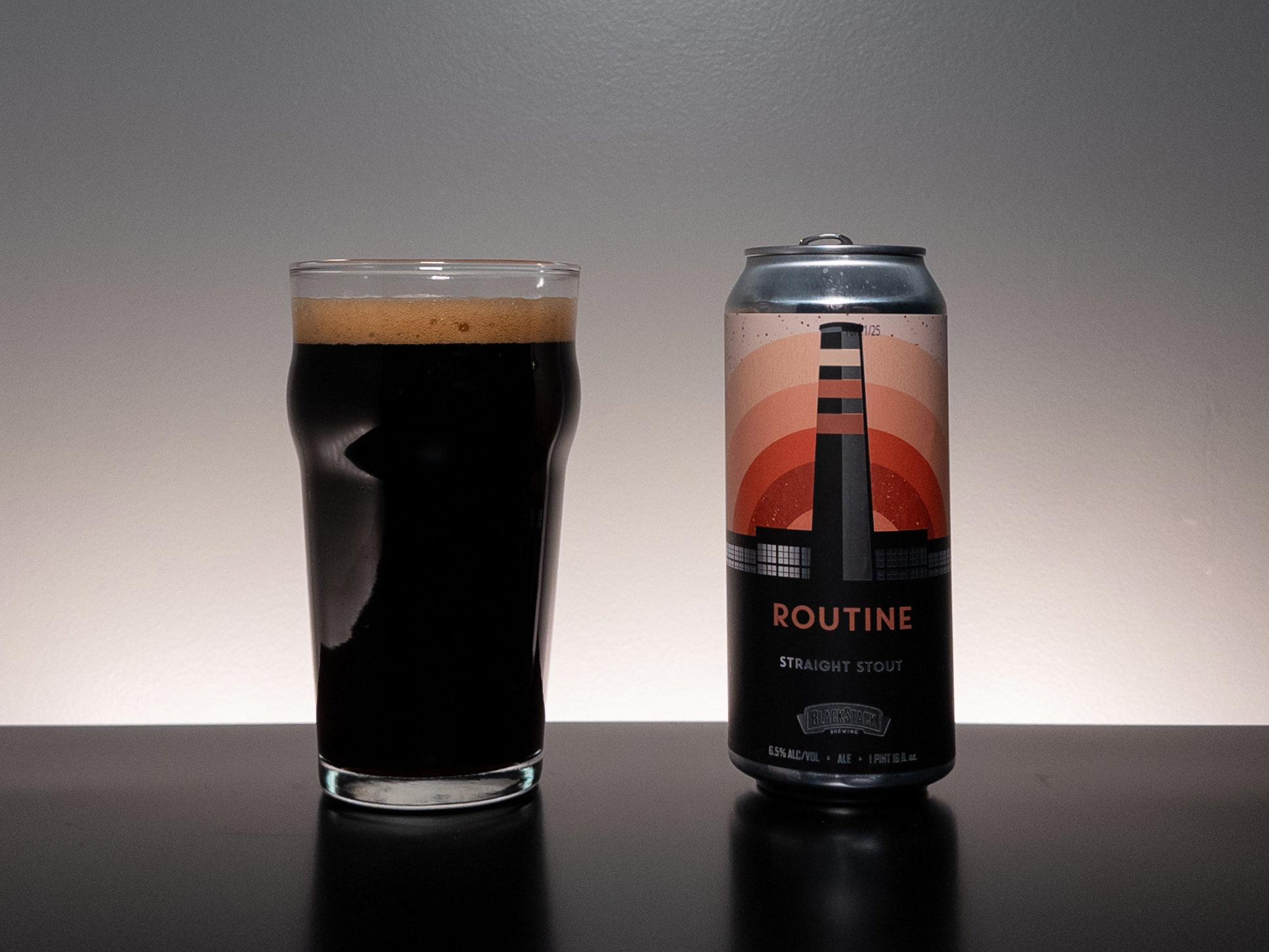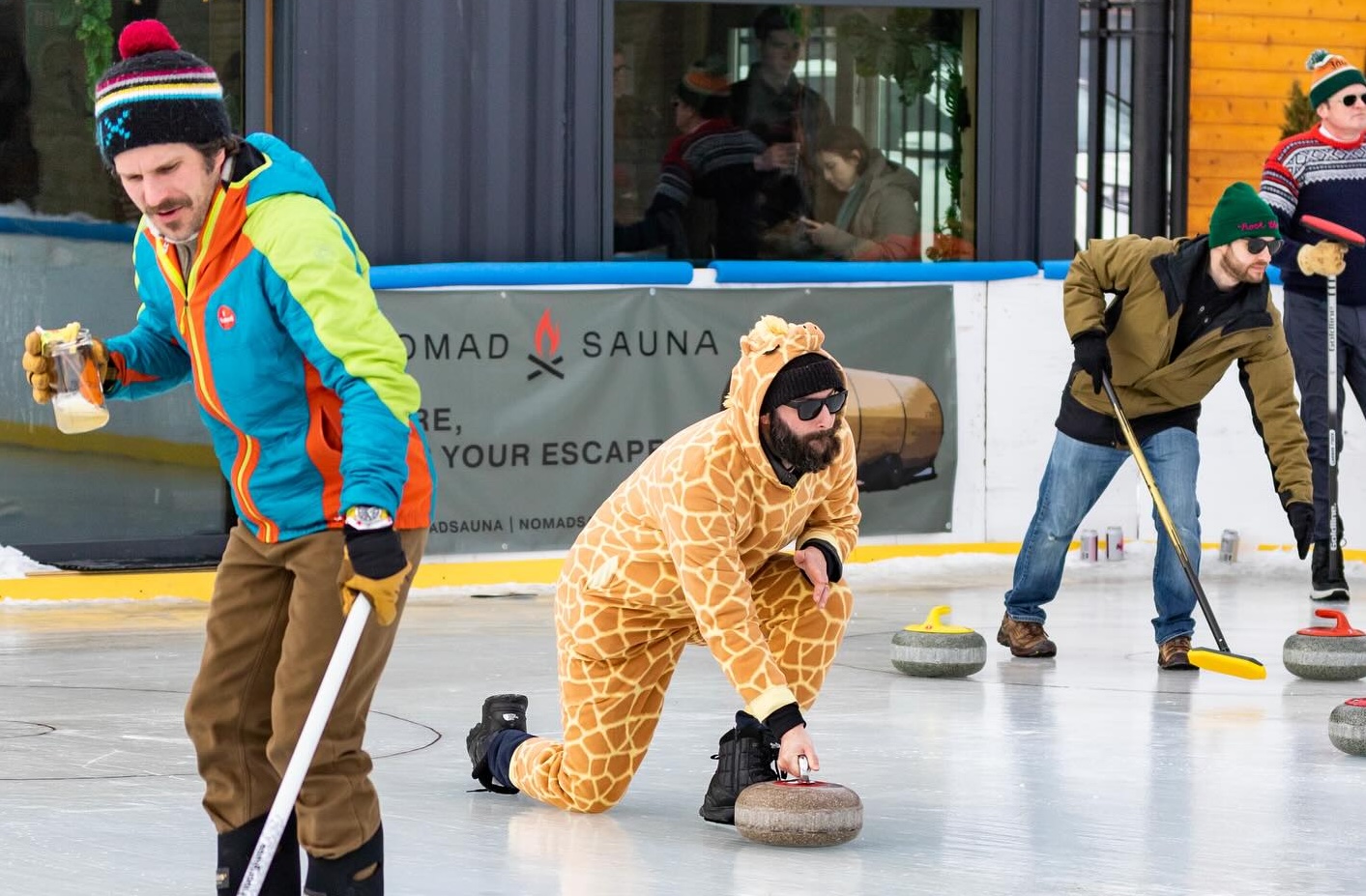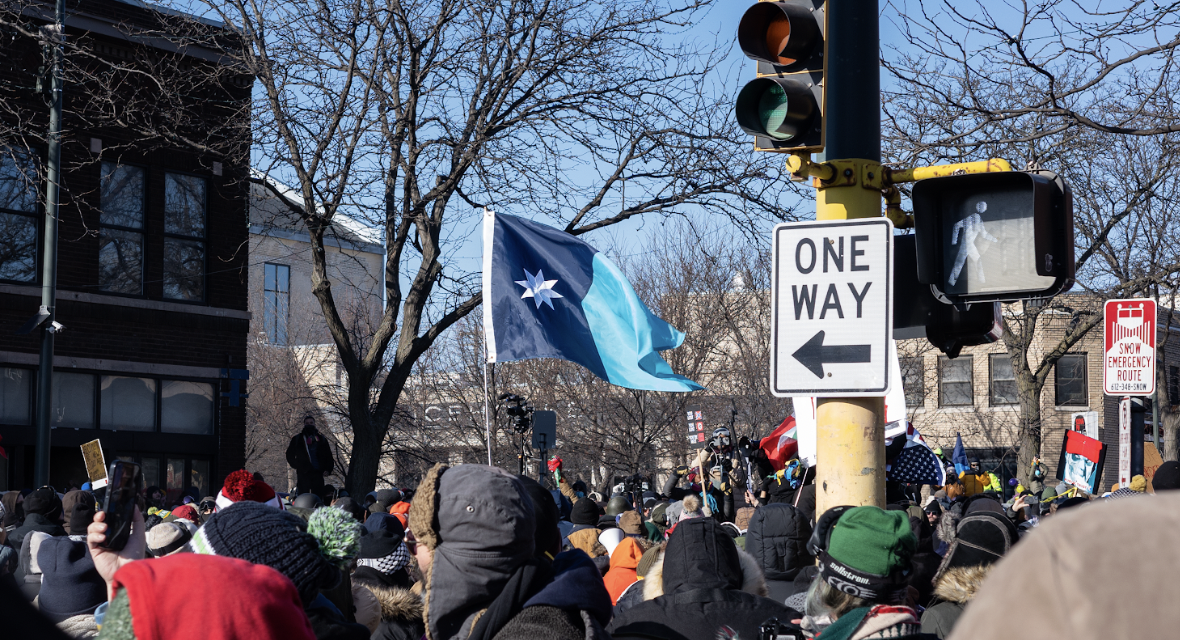I think I was born bored.
A young woman wearing cat ears is murmuring her way hypnotically through “Claw Machine,” a song from this summer’s cult film in the making, the haunted trans fable I Saw the TV Glow. Heavy Auto-Tune shreds her voice.
I think I was born blue.
Above her, in a corner of Minneapolis’s Seward Cafe, hangs a large Palestinian flag; at the room’s entryway there’s one of those “IT’S A” signs used to announce a baby’s sex, and underneath it reads “THREAT.”
I think I was born wanting more.
As the music crests, a few dozen people crowd in, embodying an expansive array of gender identities. Someone wears a “Transsexuals Have Got to Get Meaner” T-shirt.
I think I was born already missing you.
The duo performing is Kitty Litter, from Chicago. They’re preceded by the glitchy house of beatmaker Alaska Jules; they’re followed up by a typically fierce set from local hyperpop renegade RiotGirrlDarko, her eyes all a-glitter and her shirt emblazoned with “BORN 2 SHIT.” (You have to look closely to read the next line: “FORCED 2 WIPE.”)
Then, the lights come up.
The night’s not quite over, but while the first three performers all worked from tracks, it’s time for a full rock band to load in. People drift away to the patio, the merch tables, the bathrooms. It’s 10:45 p.m., and as the room empties out you might wonder if maybe it’s too late for a Monday night headliner.
Until John O’Brien’s guitar rounds folks up with an incongruous Chuck Berry lick, that is. A woman next to him, with prominent brows and a slightly elfin face that portends mischief, challenges him to work as many of those old rock ‘n’ roll guitar parts into the set as he can. “If you get to 10 I’ll buy you a pack of Zyn,” she promises.
That’s Anita Velveeta talking, and next she shouts “Check, one, two! Everyone inside!” to coax any patio loiterers back indoors.
“I hit someone with a mic stand in Milwaukee,” she warns us. “I can’t be trusted with a stand. So, uh, get up front if you want the shit beaten out of you.”
Minutes later, Anita is in the middle of the room, at the center of the action, bodies flailing toward and away from her, and we’re all happy and fortunate that she left the mic stand back by the drum riser. The band churns out all sorts of aggressive yet melodic rock, sludgy one moment, fleet the next, and Anita’s voice follows suit, emitting a death-metal growl or a defiant yelp as the mood suits her.
Sadly, O’Brien didn’t hit 10 Berry riffs—I counted—but I’m pretty sure I heard the guitar line from the Dead’s “Turn on Your Love Light” between songs.
Despite its long history of what we once quaintly and patronizingly called “gender-bending,” and its promise to provide young people with a way to reshape themselves, rock has until recently rarely been a prominent site for trans visibility. Toying with gender and sexuality as a shtick, a performance, a provocation—that’s just showbiz, and nobody minds as long as the makeup comes off after the show. But proclaiming your identity in defiance of creaky old gender norms could, until very recently, feel like taking things too far.
For years, Venus DeMars of All the Pretty Horses stood out as the lone trans figure in the Twin Cities music scene. When she began performing locally in the '80s, she was so singular she practically seemed unique. “We couldn't get anywhere here because I was trans, and nobody knew what to do with that,” DeMars told MPR in 2023. “People were really not taking me seriously at all.” Even in New York, she stood out from the so-called “drag punk scene” as a visibly trans woman taking early hormone treatments.
And then… something changed. The overall queering of the local music scene over the past decade is unmistakable. That has meant the gay/lesbian/bi musicians we always knew were there coming out, but also the emergence of non-binary and trans musicians. As I write this, for instance, I happen to come across an announcement from trans multidisciplinary artist Xochi de la Luna for a daylong festival in August that announces, “This is the first year where the lineup is predominantly trans.”
This isn’t the landscape of indie rock in the ’90s or ’00s. According to Anita Velveeta, it isn’t even the landscape she came up in less than a decade ago. “When [my old band] Alien Book Club was going on, there was 4th Curtis,” she tells me, referring to the ‘10s group whose status as an all-trans band was so atypical that media commonly referred to them as, well, “the all-trans band 4th Curtis.” “But we didn’t run in the same scene and they were older. It just kind of slowly happened and then suddenly it was everywhere.”
Ginger Kostelecky, of the band Cannabis Kiss, says Anita downplays her role in fostering the growth of younger bands with trans members.
“She probably wouldn’t put it this way, but she’s one of the top dogs of the scene,” says Kostelecky, who considers Anita a friend. “She cares for the community—setting up shows, helping other bands. She’s just one of the most supportive people in the scene. The first time I ever used a bathroom that went with my gender was at an Anita show.”
Anita is now 30 and accepting the responsibility that comes with age. “I’m not ready to be called the scene mom yet, OK, but I feel like a big sister, which is good,” she says. “There's not a lot of older trans people, you know, for various bad reasons. So it's nice to be that for some people.”
For all her scene-fostering prowess, Anita Velveeta as we know her today was born in pandemic isolation. (The real Anita was born in Chicago and raised primarily in Lakeville, MN.) Alien Book Club had planned a four-month tour for 2020, which went the way of everyone’s plans that year.
“I bought a synthesizer with my stimulus check,” she tells me over coffee at the Hard Times Cafe on the West Bank, a couple weeks prior to her Seward show. “If it wasn't for a global pandemic forcing me to be in my house and not play guitar music, then I wouldn't have this project.”
She began by soundtracking game jams—those online projects where a team of participants whip up a video game in the span of a couple weeks. She added vocals to 20 of her favorites and, in December 2020, released the sometimes chipper, sometimes doomy What Do Dogs See When They Have a Flashback? As she describes it on Bandcamp, "It’s an album about dogs dying, hating your job, and gender dysphoria.”
When her low expectations for its reception were quickly exceeded, she recorded more tracks, booked some shows, and—wait, what about that punky guitar band I saw at the Seward? Well, genre-consistency is not on Anita’s agenda. The Anita Velveeta Bandcamp page is crammed with electronic solo projects and full band albums both, some serious and some silly.
Now That’s What I Call Nightcore, which speeds up “Drop It Like It’s Hot” and “California Love,” Everclear and Nickelback, is “kind of a joke” she tells me, or, to turn to Bandcamp copy yet again: “Absolutely the dumbest shit I’ve ever done.” But she offers a plausible defense of it as well. “It's also about repurposing music," Anita says, "about kind of queer-coding straight music and transforming it for a different audience.”
Maybe you could say the same for the punk on her most recent album, I Saw the Devil in Portland Oregon, released last September. Scrappy but not sloppy, with shoutalong choruses, this is the other side of Anita Velveeta, the one you’re most likely to see live. She plans to reconcile the two sides on her new album, which she started work on late last year and thinks will be ready next April.
“There's this mentality that art will never be self-sustaining,” Anita tells me. “I think that's bullshit and I think if you accept that you're never gonna make cool shit. It takes time. It takes energy and sacrifice.”
Here she references Patti Smith’s memoir of New York in the ’70s Just Kids, saying, “She talks a lot in that book about being broke in New York City. And it's just like, I don't know how I'm gonna eat, but I'm free. And I'm like, ‘You're so right, Patti.’”
Then again, Patti Smith and Robert Mapplethorpe lived on next to nothing in lower Manhattan. Anita lives in East St. Paul, sharing a one-bedroom apartment with two other people.
“It makes rent cheap and it allows us to focus on our art,” she explains. “One of my roommates is a tattoo artist and so he's growing his portfolio. Not having to work 40 hours a week allows him to do a lot of tattoos and pursue his trade.”
For Anita, that means spending a lot of time on tour. When I met with her in June, she’d already played 52 shows in 2024 and was about to hit the road again for a week or so.
It’s those tours that brought her to "middle of nowhere" places like Herndon, Virginia, about 45 minutes south of D.C.
"There’s a woman who does all the booking for this one DIY venue—shout out to Demeter," Anita says. "You know, at age 15, or 16, you don't have anything else to do, nowhere else to go in a small town, right? If kids don't have something to do, they're gonna find something really shitty to do.”
Drugs? Sure. But the worst part is they won’t form bands.
“They're just gonna be Twitch streamers," Anita says. "And that's so depressing."
Some of the kids from these small towns around the country are turning up in Minnesota. Meanwhile, as Racket wrote about earlier this year, young trans people are fleeing states with discriminatory anti-trans laws for the comparatively safe haven of Minnesota, which banned conversion therapy and established the state as a trans refuge last year.
Anita meets these trans newcomers regularly.
“Almost every show I play, I always get someone that tells me, ‘This is the first time I’ve seen so many trans people in one room,’” she says. “I think a few years from now, there’ll be kids playing music and they’ll be like, ‘Oh yeah, my parents moved here when I came out.’”
Anita herself came out as trans at 25. She says of the younger trans scene kids, “I'm glad that they’re comfortable enough to come out and play music at their age. But I wish the world wasn't trying to kill them. Mostly I just think, ’You're so young and this is so, so beautiful.’”
The young, beautiful, comfortable crowd at the Seward thrashes around for a good half hour, with Anita at the center throughout. New songs have titles like “Stealing from Target Is a Twin Cities Pastime” and “Bored of Tinder, Scared of Grindr.” Between songs, Anita issues a proclamation: “You can’t buy any Anita Velveeta merch if you don’t buy Kitty Litter merch first.” She also says “Sobriety is a gift. You don’t have to drink.” (She herself quit drinking about eight months ago.)
The show climaxes, as it feels it must, with “TERFs Will Not Get Into Heaven.” (Introduced, yes, by another Chuck Berry lick.) The title rhymes with “Nazi scumbags are their brethren,” and it’s full of declarations like “I am not an issue” and “I’ll never forgive what you have done,” while calling out “girl-bossing sexist fascism.” It’s as blunt and necessary as a great punk song should be, and its riff, to my very old ears, suggests early Nirvana, or whatever ’70s rockers they swiped it from.
As bodies jostle around her, Anita starts to pass the mic around. Each recipient takes the opportunity to unleash the most furious scream they’re capable of. At an Anita Velveeta show, everyone gets to be the star, if just for a moment.







